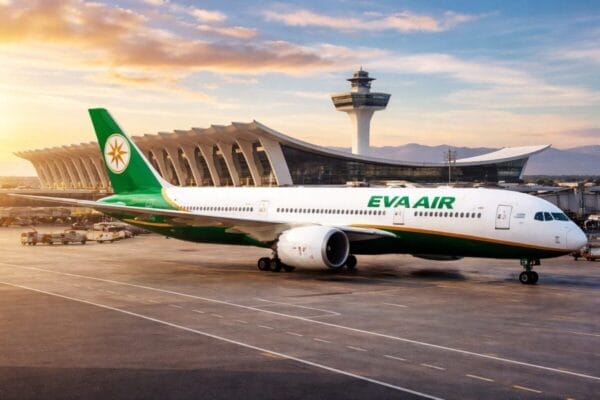In a strategic shift with major implications for the global aviation and travel industries, Qatar Airways has officially canceled its order for 25 Boeing 737 MAX 10 aircraft, as confirmed by Group CEO Badr Al-Meer. The decision marks the end of a temporary fleet diversification strategy originally adopted during the airline’s high-profile dispute with Airbus in 2022 over paint surface degradation on A350 aircraft.
The cancellation, long speculated within industry circles, was made public in June 2025 and aligns with Qatar Airways’ ongoing commitment to operating a modern, efficient, and predominantly widebody fleet as global air travel demand continues to rebound post-pandemic.
From Conflict to Course Correction
The original Boeing 737 MAX 10 order stemmed from an extraordinary chapter in Qatar Airways’ fleet procurement strategy. In 2021–2022, a well-documented legal clash between Qatar Airways and Airbus led to the grounding of more than 20 Airbus A350s over what the airline deemed unsafe degradation in fuselage paint layers.
The dispute escalated to legal arbitration, prompting Qatar Airways to temporarily sever ties with Airbus and pivot to Boeing, placing orders for both 737 MAX 10 narrowbodies and 777X widebody aircraft as a show of diversification and resilience.
However, the dispute was eventually settled in early 2023, with Airbus and Qatar Airways reaching a mutual agreement that saw the restoration of the A350 orderbook and a recommitment to their long-standing partnership. Since then, Qatar Airways has resumed A350 deliveries, effectively reestablishing Airbus as the backbone of its long-haul operations.
Why Qatar Airways Walked Away from the MAX 10
The Boeing 737 MAX 10 cancellation, while not surprising, sends a strong signal that Qatar Airways is refocusing its strategy on long-haul and premium travel segments. The airline has long favored widebody aircraft such as the Airbus A350-1000, Boeing 777-300ER, and Boeing 787 Dreamliner, all better suited to its global network spanning six continents.
Key factors influencing the cancellation include:
- Narrowbody redundancy in a fleet optimized for long-haul travel
- Continued delays in the MAX 10 certification timeline from U.S. regulators
- The airline’s repaired relationship with Airbus, reducing the need for MAX acquisitions
- Strategic alignment with Qatar’s Doha-based hub model, which relies heavily on widebody aircraft for connecting intercontinental traffic
Speaking at a press event in Doha, CEO Badr Al-Meer said, “We’ve made a clear decision based on our future fleet needs and the direction of our network growth. The MAX 10 does not currently align with our operational goals.”
Travel and Tourism Impacts: What This Means for Passengers and Partners
Qatar Airways’ withdrawal from the MAX 10 program is more than just a procurement update—it’s a signal to the travel industry about where the airline sees its long-term value.
For passengers, the decision may result in a more consistent onboard product experience, particularly on regional and medium-haul routes where MAX 10s would have operated. Travelers can expect:
- Enhanced passenger comfort across the fleet with A350s and 787s
- Greater long-haul connectivity via Doha, especially to Asia-Pacific and Africa
- An increased focus on sustainability and fleet commonality, leading to reduced delays and operational efficiency
For the broader aviation and tourism sectors, the move reflects how leading global carriers are responding to shifting demand trends, fleet economics, and manufacturer reliability.
Boeing’s Position and the MAX 10 Certification Challenge
Qatar Airways’ cancellation is another setback for Boeing as it works to gain full FAA certification for the 737 MAX 10, the largest and most delayed member of the MAX family. The MAX 10 remains uncertified as of mid-2025, limiting its commercial viability for several international carriers.
This decision follows a trend of airlines reassessing their MAX orders amid growing concerns over:
- Regulatory bottlenecks in the U.S.
- Pilot training and aircraft standardization complexity
- Sustainability demands favoring newer-generation widebody aircraft
While Boeing continues to enjoy strong sales of the 737 MAX 8, especially in North America and Southeast Asia, the MAX 10’s global future remains uncertain unless regulatory and delivery issues are resolved.
Qatar Airways’ Fleet Outlook Ahead of World Events
The cancellation frees Qatar Airways to deepen its investments in long-haul capacity and sustainability ahead of several key global events, including:
- COP30 in Belém, Brazil, where climate action in aviation will take center stage
- The 2030 FIFA World Cup, partially hosted in Saudi Arabia, bringing large-scale regional air traffic
- Qatar’s Vision 2030 tourism goals, which depend on robust air connectivity and premium traveler experiences
Fleet data shows that Qatar Airways is expected to receive additional Airbus A350-1000s, A321XLRs, and Boeing 787-9s over the next 24 months, allowing it to reinforce long-haul routes and launch new destinations while maintaining operational efficiency.
Conclusion: A Strategic Move Reflecting Market Realities
Qatar Airways’ decision to cancel its Boeing 737 MAX 10 order is a calculated and strategic shift reflective of the airline’s long-term priorities, market conditions, and restored trust with Airbus.
For the travel and tourism sector, the move reaffirms that fleet consistency, long-haul flexibility, and reliability remain top priorities for carriers seeking to lead in a post-pandemic, climate-aware aviation landscape.
As Qatar Airways continues to expand its global network from its Doha hub, travelers and industry stakeholders alike can expect greater focus on premium services, sustainable aviation, and seamless international connectivity—without the MAX 10 in the mix.
Read more travel news, follow Global Travel Wire.
















